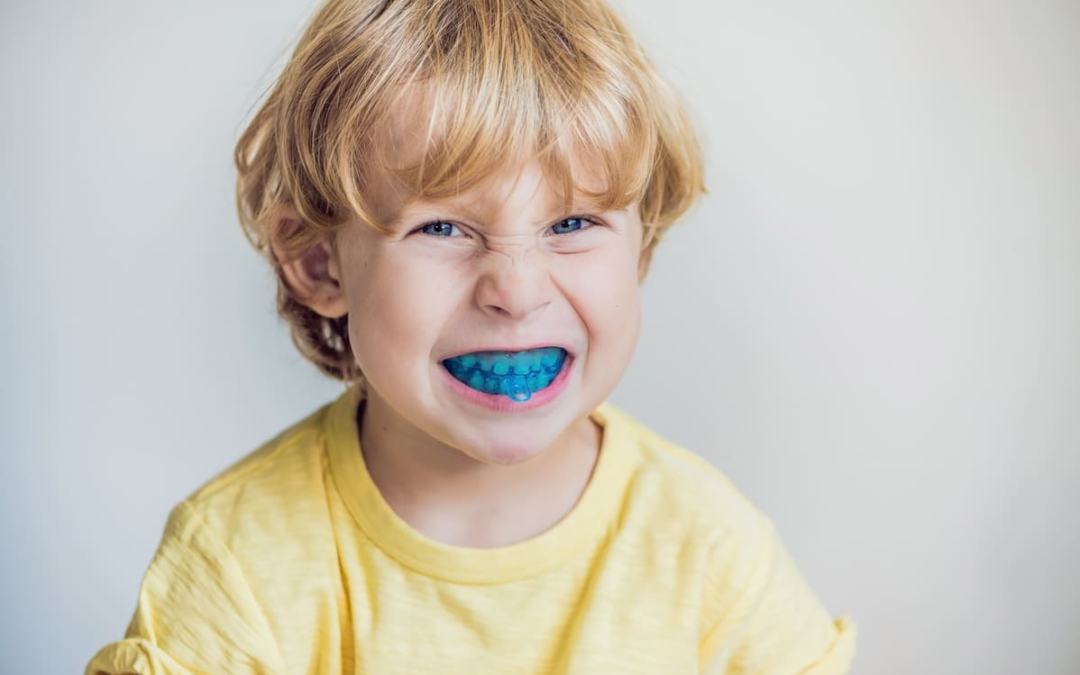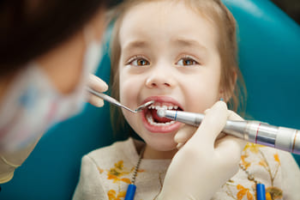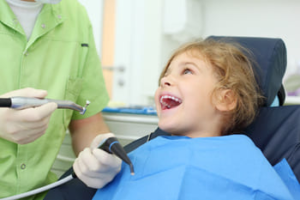Teeth grinding, medically known as bruxism, is not just an adult concern; it is surprisingly common in children. According to various studies, approximately 20% to 30% of children will grind or clench their baby teeth at some point. While some may overlook this habit as a temporary phase, failing to address it can lead to more serious dental issues, not to mention the discomfort and pain it might cause your child.
Understanding the symptoms, causes, and treatments available is vital for any parent aiming to safeguard their child’s dental health. In this comprehensive guide, we will delve into the what, why, and how of teeth grinding in children, equipping you with the knowledge you need to take proactive steps.
What is Teeth Grinding (Bruxism), and How Does it Affect Children?
Tooth grinding, also known as sleep bruxism, is a problem that can affect people of all ages, including children. Although it often occurs unconsciously, usually during sleep, it can have significant consequences for a child’s dental and overall health. Let’s explore what bruxism is and how it impacts children specifically.
Definition of Bruxism
Bruxism refers to involuntary or habitual grinding, gnashing, or teeth clenching. It often happens during sleep but can also happen when a person is awake, usually under stress, concentration, or physical activity.
Causes in Children
Figuring out why your little one grinds their teeth can feel like solving a puzzle, especially because they may not even realise they’re doing it. Often, the causes can be emotional, like stress from a new school or friendship woes. Dental issues, like misaligned teeth, can also make kids more prone to grinding. Additionally, medical conditions like sleep apnea could be the hidden culprit. And let’s not forget our youngest kiddos; they might just be dealing with the discomfort of new teeth coming in or some other oral irritation.
Short-term Effects
If your child is grinding their teeth, you might notice some immediate red flags. It can include sensitive teeth, especially to hot or cold foods. You might even see signs of wear and tear on their pearly whites. But the impact isn’t just limited to their mouths; they could also complain of jaw pain. And if they’re tossing and turning more than usual at night, their grinding habit could be the reason. This disturbed sleep can lead to them being sleepy or even acting out during the day.
Knowing the signs and potential causes can empower you as a parent to seek the right help and solutions for your child.
Long-term Effects
If left untreated, teeth grinding can lead to more severe dental problems such as cracked or broken teeth, severe tooth wear, and even loss of teeth. Additionally, untreated bruxism can exacerbate jaw issues, including temporomandibular joint disorders (TMJ).
Symptoms of Teeth Grinding in Children
Recognising the symptoms of a child’s teeth grinding is crucial for early intervention and effective treatment. Unlike adults, children may not be aware they’re grinding their teeth or might lack the vocabulary to describe what they’re experiencing. Here are some common symptoms parents should look out for:
Audible Grinding Sounds
One of the most apparent signs is the grinding noises or clenching teeth, often heard during the child’s sleep. Some children grind loudly enough for it to be heard across the room.
Physical Evidence on Teeth
You may notice wear and tear on your child’s teeth-biting surfaces upon dental inspection. Over time, this wear can lead to sensitivity or even damage to the tooth enamel.
Jaw Discomfort and Pain
Your child may complain of jaw pain or discomfort, particularly in the morning upon waking. Tenderness in the jaw muscles may also be a sign.
Sleep Disturbances
Teeth grinding can lead to restless sleep or frequent waking, resulting in daytime fatigue or difficulty concentrating in school.
Behavioural Clues
Sometimes, behavioural issues like increased irritability, stress, or anxiety can be linked to bruxism, especially if these symptoms coincide with any of the physical signs mentioned above.
By staying vigilant for these symptoms, parents can promptly address the problem and mitigate its impact on their child’s health.
Potential Causes of Teeth Grinding in Children
Understanding the root causes of teeth grinding in children is crucial for effective treatment and prevention. Several factors, often combined, can lead to bruxism in young individuals. Below are some of the common reasons.
Emotional Stress and Anxiety
One of the most common causes is emotional stress or anxiety. Changes in the family dynamic, school pressures, or social issues can lead to stress, which may manifest physically through teeth grinding. Younger children, who may not be able to express their emotions verbally, are particularly prone to exhibiting stress through physical symptoms like bruxism.
Improper Tooth Alignment
Misaligned teeth or an unusual bite can contribute to teeth grinding. When teeth don’t fit together correctly, children may unconsciously grind or clench to relieve the discomfort. Orthodontic treatment may be recommended to rectify the alignment and reduce teeth grinding.
Medical Conditions
Certain medical conditions, such as sleep apnea, ADHD, or digestive issues, can cause or exacerbate teeth grinding. In the case of sleep apnea, the grinding serves as a subconscious mechanism to reopen the airway. For children with ADHD, the grinding may be a form of fidgeting or restlessness. It’s essential to consult healthcare professionals to identify any underlying conditions.
Medications and Substances
Although less common, certain medications, like some antidepressants, have been linked to bruxism. Always consult your child’s doctor about potential side effects when a clinical sleep medicine is prescribed.
Sleep Disorders
Children with sleep disorders like insomnia or restless leg syndrome may also experience higher rates of bruxism. Addressing the underlying sleep issue often results in a reduction of teeth grinding.
Hereditary Factors
There is evidence to suggest that bruxism may run in families. If parents or other close family members have a history of teeth grinding, the child is at a higher risk of experiencing the same issue.
Nutritional and Dietary Factors
Dietary choices can also influence teeth grinding. Excessive caffeine or sugar intake, especially close to bedtime, may contribute to more restless sleep and an increased likelihood of bruxism.
Teething and Dental Growth
For younger children and toddlers, the eruption of new teeth and jaw growth can cause discomfort and may lead to temporary grinding.
How is Teeth Grinding Diagnosed?
Diagnosing teeth grinding in children often involves a multi-faceted approach that combines medical assessments with parental observations.
Dental Examination
The first step is usually a thorough dental examination. A pediatric dentist can identify signs of excessive usage on the upper and lower teeth, gum inflammation, and other bruxism-related dental issues.
Parental Observations
Parents play a critical role in diagnosis by observing and reporting symptoms like audible child grinding sounds during sleep, morning sore jaw, or other related issues.
Sleep Studies
In some situations, a sleep study may be suggested, especially if the teeth grinding is suspected to be related to a sleep disorder like sleep apnea.
By employing these methods, healthcare professionals can accurately diagnose the condition and recommend a tailored treatment plan.
Treatment Options
Addressing teeth grinding in children is critical for safeguarding their oral health and well-being. Treatment options are available, each tailored to the underlying cause and symptoms. Below are some common treatment paths parents can consider:
Consult a Pediatric Dentist
A specialised pediatric dentist can diagnose the severity of the condition and recommend appropriate treatments. Regular dental check-ups can help monitor the child’s dental health and adapt treatment as necessary.
Mouthguards and Dental Appliances
Custom-fitted mouthguards are one of the most commonly prescribed treatments for bruxism. These appliances are worn during sleep to protect the teeth from teeth clenching. A dentist usually crafts them to fit your child’s teeth perfectly.
Behaviour Modification and Stress Management
Psychological factors like stress and anxiety are often linked to bruxism. Cognitive-behavioural therapy (CBT), relaxation techniques, or simple bedtime rituals can help manage stress and potentially reduce teeth grinding.
Treating Underlying Medical Conditions
If teeth grinding is due to a medical condition like sleep apnea or ADHD, treating the underlying issue is crucial. This may involve medication, lifestyle changes, or other specialised treatments.
Medication
While medication is generally a last resort, muscle relaxants or anti-anxiety medicines may be prescribed in severe cases. Always consult with healthcare providers for a comprehensive treatment plan.
Orthodontic Treatment
Orthodontic treatments such as braces or aligners may be recommended for cases of bruxism caused by improper tooth alignment or an abnormal bite.
Nutritional Supplements
Some studies suggest that a deficiency in certain nutrients, like magnesium, can contribute to bruxism. Consult a healthcare provider for a proper diagnosis and appropriate supplements.
Home Care and Parental Involvement
Parents can play an active role in treatment by encouraging stress-reducing activities, maintaining a regular sleep schedule, and promoting a teeth-friendly diet.
A holistic approach that combines medical intervention with lifestyle adjustments often provides the most effective treatment for teeth grinding in children.
Conclusion
If you’ve observed signs of teeth grinding in your child or are concerned about their dental health, the importance of timely and professional medical advice can’t be stressed enough. Your child’s well-being is paramount, and the sooner you act, the better the outcomes are likely to be.
If you’ve observed signs of teeth grinding in your child or are concerned about their dental health, the importance of timely and professional medical advice can’t be stressed enough. Your child’s well-being is paramount, and the sooner you act, the better the outcomes are likely to be.
Don’t leave your child’s dental health to chance. If you’re concerned about teeth grinding or other dental issues, make an appointment with the experts at Bright-On Bay Dental today. You can reach us at 02 9538 7028 for a thorough consultation and a personalised treatment plan tailored to your child’s needs. Your child’s smile is too precious to risk!
References
https://www.betterhealth.vic.gov.au/health/conditionsandtreatments/teeth-grinding#:~:text=Teeth%20grinding%20(bruxism)%20is%20involuntary,damage%2C%20and%20stress%20management%20therapy.
https://www.webmd.com/oral-health/teeth-grinding-bruxism




Recent Comments